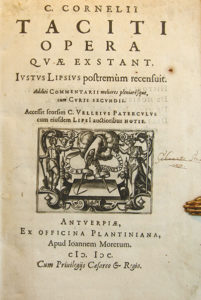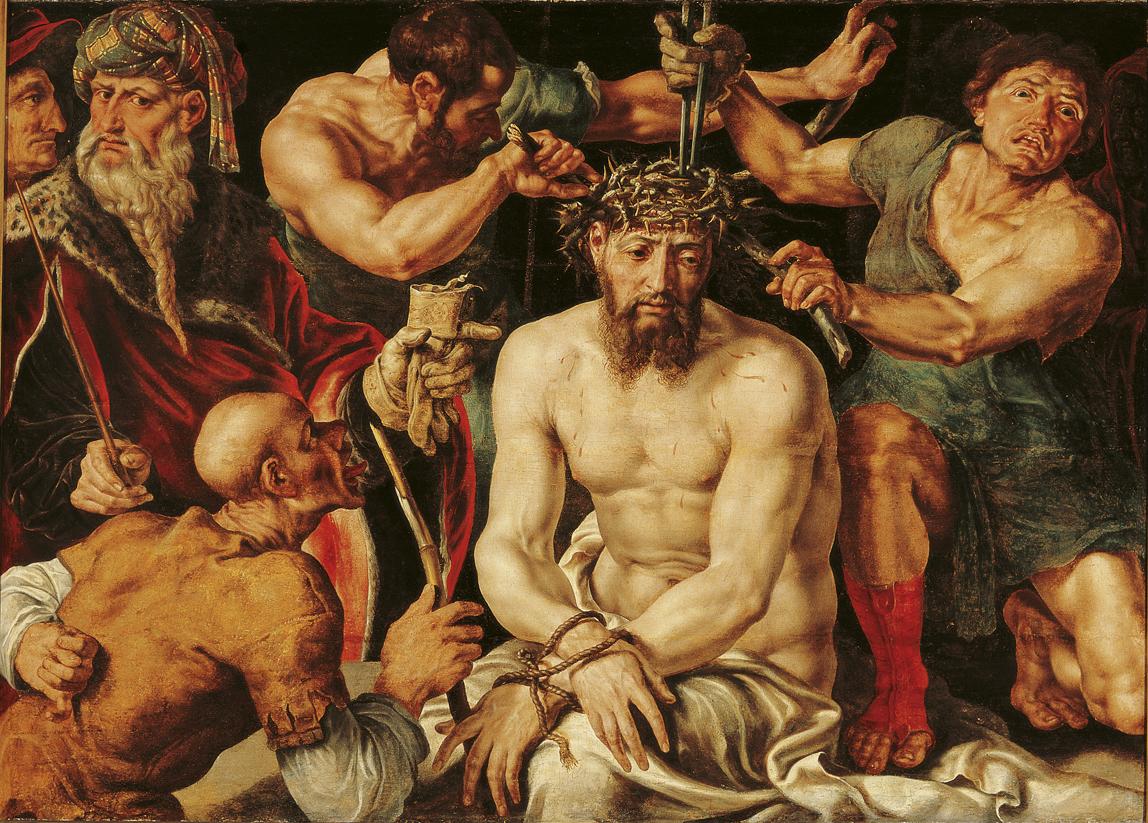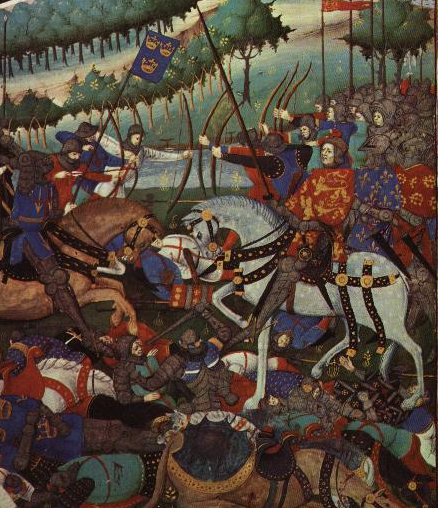Usually one must wait for Easter for the media to trot out its stable of “mainstream” religious scholars who know nothing about their subjects. This year, the present was delivered at Christmas:
Also important are the sources we don’t have. There are no existing eyewitness or contemporary accounts of Jesus. All we have are later descriptions of Jesus’ life events by non-eyewitnesses, most of whom are obviously biased. Little can be gleaned from the few non-Biblical and non-Christian sources, with only Roman scholar Josephus and historian Tacitus having any reasonable claim to be writing about Jesus within 100 years of his life. And even those sparse accounts are shrouded in controversy, with disagreements over what parts have obviously been changed by Christian scribes (the manuscripts were preserved by Christians), the fact that both these authors were born after Jesus died (they would thus have probably received this information from Christians), and the oddity that centuries go by before Christian apologists start referencing them.
— “Did historical Jesus really exist? The evidence just doesn’t add up.”
This is the problem when one asks religious scholars, rather than historians, an historical question: all you get is muddle.
The statement that “There are no existing eyewitness or contemporary accounts of Jesus” is mere assertion, the finest in 18th century radical biblical commentary, and utterly ignores the claims not only of the Gospels, but of Acts and many of the epistles, and especially the church fathers. It also ignores the scholarship of the last 150 years.
The claim that Tacitus and Josephus “probably received their information from Christians” is the same form of bald assertion. There is no reason to believe that Tacitus, one of Rome’s premier historians, with a demonstrated antipathy to this weird little cult that was popping in every city, was trafficking in rumors of a Savior that did not exist. Josephus, a Jewish military officer in Galilee, probably knew any number of Christians, but as his references to Christ appear in a voluminous history of the Jewish nation written for the Romans, there is again no reason to assume that Josephus was making the fabulous real. Such assertions are not how historians do history. And to put it bluntly: no serious historian doubts the existence of Jesus.
Those who promote Christ Myth theories are nearly always religious scholars or other amateurs, who constantly complain that we have no sources while ignoring, marginalizing, and denigrating the sources we have.
They will claim that we can know nothing about the historical Jesus. I beg to differ. So let’s look at the two non-Christian sources mentioned by our author and see what we can draw out from them.
Josephus was a Jewish general in the Roman-Jewish war, surrendering his Galilean troops to Vespasian’s legion in 67ad. He then joined Vespasian’s household (taking his family name Flavius) and wrote a history of the Jews from creation to the first century, dedicated to his new master. In this 20-volume work there are exactly 2 passages that mention Jesus by name. One, a flowery hagiography known as the Testimonium Flavianum, is truly mired in controversy, so we’ll skip it. The other, a reference to the death of an otherwise unremarkable man named James, reads as follows:
Festus was now dead, and Albinus was but upon the road; so he assembled the sanhedrim of judges, and brought before them the brother of Jesus, who was called Christ, whose name was James, and some others; and when he had formed an accusation against them as breakers of the law, he delivered them to be stoned…
— Josephus, Antiquities, XX, 9
The passage in which this sentence sits does not focus on Jesus or James at all, but upon how the Jews were upset by the heavy hand of Ananus, the High Priest (the “he” mentioned above), and how they were complaining to Herod Antipas about it. But that is its strength – there is simply no argument to be made that Christians added this passage, which is not recorded in the Bible*. It is an authentic part of Josephus’ work. Therefore, historians accept the historical existence of Jesus who was called Christ on the weight of this passage alone.
But what can we glean from it concerning Jesus and the early church? Quite a bit, actually.
Facts:
- There was a man named Jesus who was called Christ.
- He had a brother named James.
- James was executed by Jewish religious authority shortly after 60 ad**.
- James’ offense (“breakers of the law”) was religious in nature.
Inferences:
- Because James is identified as the brother of Jesus, Jesus was more famous
- Because Christ is a religious title, Jesus was a religious figure
- Because Christ was not recognized by Jewish leadership, he was an “opposition” or “hostile” religious figure
- Because James was executed unfairly, he was being made an example of.
- “and some others” refers to others like James, i.e. religious heretics.
From this one may preliminarily conclude that:
Around the middle of the first century, in the Roman province of Judea, there was a religious leader named Jesus who was called Christ. He, members of his family, and others with them stood against the existing Jewish religious authorities. Some were killed for it.

With that as a base, let’s take a look at the Tacitus passage:
Consequently, to get rid of the report, Nero fastened the guilt and inflicted the most exquisite tortures on a class hated for their abominations, called Christians by the populace. Christus, from whom the name had its origin, suffered the extreme penalty during the reign of Tiberius at the hands of one of our procurators, Pontius Pilatus, and a most mischievous superstition, thus checked for the moment, again broke out not only in Judæa, the first source of the evil, but even in Rome, where all things hideous and shameful from every part of the world find their centre and become popular.
— Tacitus, Annals, XV:44
The “report” of course, was the rumor that Nero fiddled while the Great Fire of Rome burned in 64ad. Nero’s response was to pin the fire on Christians and to torture them so fiercely that even though they were hated by Rome’s pagan populace, the usually-stoic Romans actually began to feel sorry for them.
However, there are a few facts we can draw from Tacitus as well:
- Christ was executed by the Romans during the reign of Tiberius, who died in 37ad.
- Christ was executed by the procurator in Judea, Pontius Pilate.
- Christ’s followers organized in Judea and from there spread to Rome.
And an inference or two:
- The “extreme penalty” here is not just execution, but crucifixion, which was the common Roman execution method in conquered provinces.
- The Christians were thus called because they talked about Christ.
So, drawing from our two sources, both accepted as genuine by professional historians, we may conclude that:
In the first third of the first century in the Roman province of Judea, there lived a religious leader named Jesus. This man was called Christ (literally “anointed one”) by his followers. Opposed by both Roman and Jewish leadership, Jesus was crucified under Pontius Pilate. Following his death, his followers, who included members of his own family, formed a new religion which they spread from Judea as far as Rome over the course of 30 years. During this time they continued to face persecution, torture, and execution. Even in the face of such opposition, they refused to deny their founder.
Is it true that “little can be gleaned” about Jesus from these two non-Christian sources? No, much of the Gospels, Acts, and even Revelation is foreshadowed in these two short passages.
Is it true that we can know nothing of the historical Jesus outside the Bible? No, it’s a lie, and a damning one at that.***
Still, there is a treasure that we do not see openly in the passages above, but that might be gleaned from them. Let us ask, Why did the followers of Jesus spread his message far and wide? Why did they persist in the face of the Emperor’s tortures? Why did Jesus’ own brother, still in Jerusalem decades after Jesus’ death, pose such a threat that he and his fellows had to be made a public example of? The Gospels give us a fact that illuminates the history.
History tells us that Jesus suffered under Pontus Pilate and died.
The Gospels tell us that on the third day he rose again.
That was the message and the faith that ensured that the followers of Christ would be hated by the world and yet would persist in the face of everything the world could throw at them.
*Christian tradition says that James was thrown to his death from the Temple, so again, there is no reason for Christians to have added this little aside.
** Festus in this passage is Roman governor Porcius Festus, before whom the Apostle Paul appeared in Acts 25. He is generally believed to have ruled until 62ad and died in office or shortly thereafter.
*** That the Washington Post wold promote such tripe on Christmas of all days is just one more reason I look forward to the complete immolation of the popular press in this country.










4
5
4.5
For more information about the historicity of Jesus, find the book “Cold Case Christianity: A Homicide Detective Investigates the Claims of the Gospels” by J. Warner Wallace available on Kindle as well as hard copy. An amazing explanation of how Mr. Wallace and other “Cold-Case” detectives investigate old, unsolved crimes and how these same techniques can be used to investigate the claims of the Gospels.